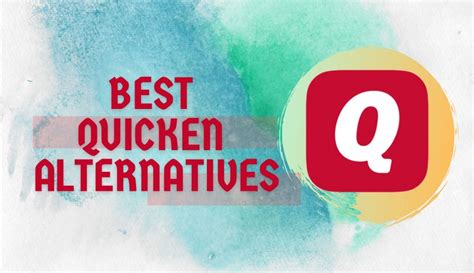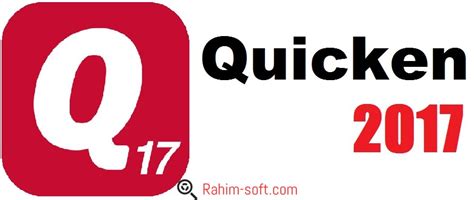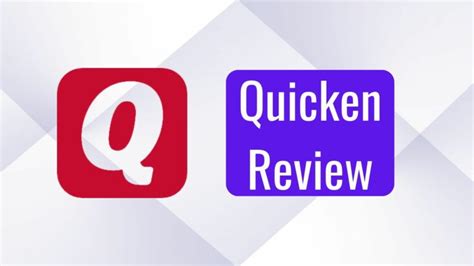Managing personal finances can be challenging, but the right tools can make all the difference. Personal budget programs are designed to help you track income, expenses, and savings, ensuring you stay on top of your financial goals. Whether you’re looking to pay off debt, save for a major purchase, or simply gain better control over your spending, budgeting apps offer a user-friendly way to manage your money. In this article, we’ll explore the best apps for managing your finances, highlighting key features to look for, comparing top options, and offering tips on choosing the right one to meet your specific needs.
Delve into this topic with zokablog.com to gain a thorough understanding.
1. Overview of Personal Budget Programs
Personal budget programs are digital tools designed to streamline individual financial management. These apps empower users to create budgets, track expenses, categorize spending, and set financial goals, all within a unified platform. The advent of technology has made budgeting more accessible and efficient, rendering manual spreadsheets and guesswork obsolete.
Numerous personal budgeting applications seamlessly integrate with bank accounts and credit cards, automatically importing transaction data for continuous monitoring. This real-time tracking empowers users to gain complete visibility into their spending patterns and make well-informed financial decisions. The majority of these apps also provide supplementary features such as bill reminders, investment tracking, and debt repayment strategies, transforming them into all-encompassing financial management solutions.
These programs benefit individuals at every stage of their financial journey, whether you’re just starting to learn about budgeting or looking to refine an existing plan. From those seeking basic tracking tools to those with more complex financial needs, personal budget programs offer the versatility to cater to diverse preferences and lifestyles. Ultimately, they provide an essential resource for anyone who wants to enhance their financial literacy, achieve goals like saving or reducing debt, and maintain greater control over their finances in an organized and stress-free way.

2. Key Features to Look For in Budgeting Apps
Choosing the right budgeting app can significantly improve your financial management. A crucial feature to consider is bank synchronization. This allows the app to automatically track your transactions by connecting to your bank accounts and credit cards. This eliminates the need for manual input, making it simple to monitor your spending in real-time.
Customizable categories are another key feature. A quality budgeting app should enable you to create and arrange expense categories that align with your individual financial circumstances. This means being able to track everything from groceries and entertainment to your savings objectives.
Budget forecasting is essential. Apps that project spending based on your current habits can help you anticipate future financial needs and make adjustments accordingly. Furthermore, bill reminders ensure you never miss a due date, preventing late fees and penalties.
Above all, prioritize security. Opt for apps that employ robust encryption and authentication protocols to safeguard your financial data. By carefully considering these essential features, you can choose a budgeting app that fulfills your requirements and facilitates your financial organization.

3. Comparison of Top Personal Budget Apps
There are several top-notch personal budget apps available, each catering to a unique set of financial needs and preferences.
Mint is a popular choice for its ease of use and wide range of features. Its free bank synchronization, customizable categories, and bill reminders make it a perfect fit for those seeking a comprehensive financial management solution. Mint also offers added value through its credit score tracking and budgeting advice.
YNAB (You Need A Budget) empowers users to take control of their finances by promoting a proactive budgeting method. This approach involves allocating every dollar earned, fostering goal-setting and financial awareness. YNAB is ideal for those who prefer a hands-on approach to budgeting. While a free trial is available, its subscription fee may be a factor for some users to consider.
EveryDollar stands out as a strong contender, especially for those who favor the zero-based budgeting approach. Its user-friendly interface simplifies expense tracking and allows for personalized adjustments. Though the basic version is accessible at no cost, the premium option unlocks additional features such as bank synchronization.
PocketGuard streamlines budgeting by presenting users with their disposable income after factoring in bills, financial goals, and essential expenses. This transparency can help users avoid overspending. Each budgeting app offers unique benefits, so it’s crucial to evaluate individual needs and financial aspirations when selecting the most suitable option.

4. Benefits of Using Personal Budget Programs
Personal budget programs provide numerous benefits that significantly enhance financial management. A primary advantage is improved financial awareness. By tracking income and expenses, users gain a clearer understanding of their spending habits, enabling them to make informed decisions about allocating funds.
A further advantage lies in goal setting and attainment. Budgeting apps empower users to set financial objectives, be it saving for a vacation, eliminating debt, or accumulating an emergency fund. Tracking progress towards these goals fosters motivation and accountability.
Personal budget programs encourage better spending habits by pinpointing areas of overspending. This increased awareness empowers users to make more thoughtful financial decisions, ultimately leading to improved financial health.
Furthermore, many budgeting apps provide features such as bill reminders and financial forecasts, effectively mitigating the stress associated with bill management and future expense planning. In conclusion, personal budgeting programs empower users to assume control of their finances, ultimately resulting in enhanced financial stability and a sense of peace of mind.
5. Tips for Choosing the Right Budgeting App for Your Needs
Selecting the optimal budgeting app is essential for successful financial management. Here are some helpful tips to guide you in making an informed choice:
Identify Your Goals: Clarify your desired outcomes from using a budgeting app. Do you aim to monitor daily spending, accumulate funds for a particular objective, or control outstanding debts? Understanding your goals will help you choose the most suitable application.
Assess Features: When choosing a budgeting app, consider your specific needs. If automation is a priority, look for an app that integrates with your bank accounts. For users who value goal tracking, an app with customizable financial targets is essential.
Prioritize Usability: A straightforward interface can make budgeting seem less overwhelming. Experiment with various apps to discover the ones that you find most user-friendly and are likely to use consistently.
Check Compatibility: Make sure the app works with your devices, such as your smartphone, tablet, or computer. This is crucial for regular use.
Cost Evaluation: Many budgeting apps are available for free, however, some offer premium features for a fee. It is essential to consider your budget and whether the additional features are worth the cost.
Read Reviews: Gain valuable insights into an app’s performance, reliability, and customer support by reading user reviews. Focus on feedback from users who have similar budgeting needs as you.
By taking these factors into account, you can choose a budgeting app that aligns with your lifestyle and empowers you to reach your financial goals efficiently.
6. How to Set Up and Use a Personal Budget Program
Creating and using a personal budget program is a simple process that can improve your financial management. Begin by downloading the budgeting app of your choice and setting up an account. The majority of apps will provide guidance throughout the setup process.
To seamlessly monitor your finances, connect your bank accounts and credit cards to the app. This automated transaction tracking saves valuable time and offers instant, clear insights into your spending patterns.
After linking your accounts, categorize your expenses according to your financial objectives and spending habits. Create custom categories, such as groceries, entertainment, and savings, to personalize your budget and align it with your specific requirements.
To manage your spending effectively, establish specific budget limits for each spending category. This will help you stay within your financial plan. Numerous apps offer the flexibility to adjust these limits as your financial circumstances change.
To maximize the benefits of your budgeting program, consistently review your budget and financial goals, making adjustments as needed. Leverage the app’s features, such as reminders and reports, to stay on track. By consistently using the budgeting program, you can enhance your financial awareness and effectively achieve your goals.
7. Common Challenges and Solutions in Budget Management
Budgeting can be a tricky endeavor, but by recognizing common challenges and their solutions, you can stay financially sound. One such hurdle is overestimating income. Individuals frequently project earnings that exceed their actual income, resulting in overspending. To mitigate this issue, consistently base your budget on conservative income projections and make necessary adjustments as your financial situation evolves.
Underestimating expenses is another common challenge. Individuals may overlook irregular costs, such as annual subscriptions or seasonal bills. To address this, develop a complete list of all possible expenses, including variable costs, and make sure to review and update this list on a regular basis.
It can be challenging to stay motivated, particularly when progress seems slow. Setting clear, attainable goals and acknowledging small achievements can help sustain motivation and make budgeting a more fulfilling experience.
Furthermore, some users find it difficult to cope with unforeseen financial challenges, such as unemployment or emergencies. Maintaining an emergency fund acts as a buffer during these times, granting greater flexibility in managing your finances.
Poor financial literacy can make it difficult to manage your budget effectively. Leveraging educational resources and the tools within budgeting apps can enhance your financial knowledge and empower you to make informed financial decisions. By tackling these challenges, you can create a more effective budgeting strategy.
In conclusion, personal budget programs are invaluable tools for managing finances effectively. By understanding their features, benefits, and how to use them, you can gain better control over your spending, set and achieve financial goals, and enhance your overall financial literacy. While challenges may arise, such as underestimating expenses or maintaining motivation, utilizing the right app and adopting sound budgeting practices can help you navigate these hurdles. Ultimately, committing to a personal budget program can lead to greater financial stability and peace of mind.
zokablog.com